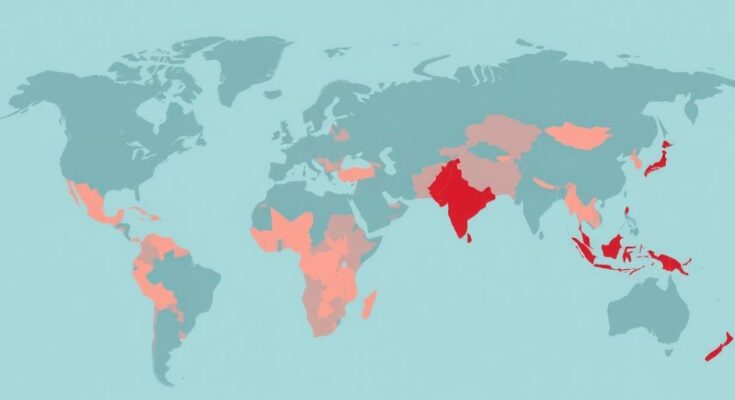The Trump administration may impose new entry restrictions on Afghanistan, Pakistan, Iran, Libya, Somalia, Sudan, Syria, Yemen, Chad, North Korea, and Venezuela, as outlined in a recent Executive Order assessing security and vetting processes. The proposal has faced considerable opposition from civil rights groups, which argue against the necessity for additional restrictions, citing existing stringent vetting measures.
The Trump administration is reportedly planning to implement new entry restrictions for several countries, including Afghanistan, Pakistan, Iran, Libya, Somalia, Sudan, Syria, Yemen, Chad, North Korea, and Venezuela. This decision follows an Executive Order signed on January 20, which mandates federal agencies to review nations lacking sufficient security screening and vetting processes. The goal of these tighter entry requirements may involve partial or complete suspension of admissions from the specified countries, with an official announcement forthcoming.
During Donald Trump’s first term, the administration initiated multiple travel bans starting in 2017, which predominantly affected Muslim-majority countries and was widely referred to as the “Muslim Ban.” Despite facing significant backlash and legal challenges, the U.S. Supreme Court upheld the third version of this ban in 2018, affirming the President’s authority to enforce national security-related regulations.
Although the final list of countries subject to restrictions remains unverified, Afghanistan and Pakistan are reportedly being evaluated for potential inclusion. Advocacy groups such as the International Refugee Admissions Project (IRAP) have raised alarms regarding the severe repercussions that such restrictions could impose on Afghan refugees, particularly those holding Special Immigrant Visas (SIV) amidst Taliban threats.
Additionally, Pakistan is under scrutiny due to security concerns and deficiencies in its vetting procedures. Should it be added to the travel restrictions, thousands of Pakistani nationals pursuing visas to the United States could be adversely affected. Civil rights organizations, including the American Civil Liberties Union (ACLU), have swiftly opposed these proposed restrictions, arguing they would exacerbate existing humanitarian crises.
Critics assert that the current vetting procedures employed by the State Department and the Department of Homeland Security are already among the most stringent globally, thereby rendering further restrictions unnecessary. The Trump administration is expected to finalize its list of countries for potential travel constraints within 60 days following the Executive Order’s issuance, with insights anticipated shortly.
In summary, the Trump administration’s prospective travel restrictions affecting multiple countries, particularly Afghanistan and Pakistan, aims to reassess national security and visa processes. The backlash from advocacy groups and civil rights organizations underscores the potential humanitarian impacts of these policies. As the deadline for finalizing the list approaches, the forthcoming official announcement will clarify the administration’s intentions concerning entry restrictions.
Original Source: www.travelandtourworld.com




